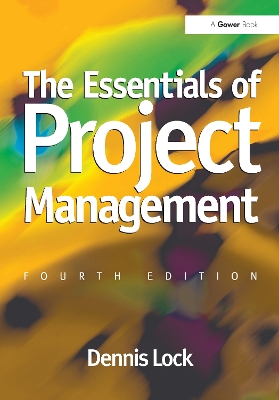Routledge Revivals
2 total works
In recent years organizations of all kinds have learned that project working, once considered significant only for engineering and construction companies, can help to ensure that the intended benefits of business change will be realized in full and on time. This development means that more people than ever before need to understand the basic process, language and purpose of project working. That awareness is important not only for those actually engaged in project work, in all sectors of industry and commerce, but also for senior managers, project sponsors and the other stakeholders. The fourth edition of Essentials of Project Management is the junior complement to Dennis Lock's comprehensive, successful and encyclopaedic textbook, Project Management (now in its Tenth Edition). Essentials provides a concise, straightforward account of the principles and techniques of project management, designed to meet the needs of the business manager or student. Using examples and illustrations, the author introduces the key project management procedures and explains clearly how and when to use them. The Essentials of Project Management remains the ideal first text for anyone new to project working or students studying project management as part of a wider business qualification or degree.
Dennis Lock's masterly exposition of the principles and practice of project management has been pre-eminent in its field for 45 years and was among the first books to treat project management as a holistic subject. But Project Management has been kept completely up to date by regular and sensitive revisions to ensure that it remains fresh and totally relevant. Project Management explains the entire project management process in great detail, demonstrating techniques from simple charts to detailed computer applications. Everything is reinforced with clear diagrams and case examples, many new for this edition. The author has expanded discussion of topics such as supply chain management and the project management office (PMO), and there are new chapters about implementing change management projects and the role of senior managers in supporting projects. Obsolescent or less frequently used methods have been stripped out, but readers of the hardback Tutor’s Edition will find that this deleted material lives on as new chapters on the accompanying downloadable resources, which have been thoroughly revised. Importantly, that disc includes comprehensive Power Point presentations with hundreds of well designed slides that tutors can use directly as a valuable resource for their lectures. Students have always commented on this book’s reader-friendly style, which is free of unnecessary jargon, with clear diagrams and a construction that is logically organized, well indexed and simple to navigate. This Tenth Edition is certain to maintain the book's acclaimed status as the standard work for managers and students alike.

